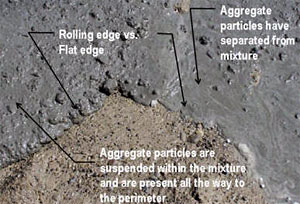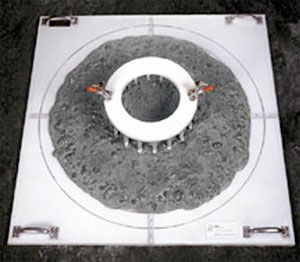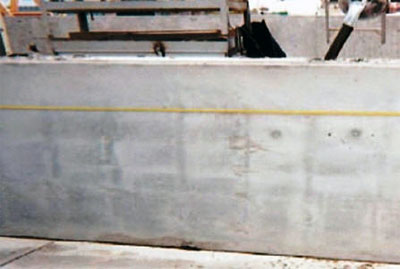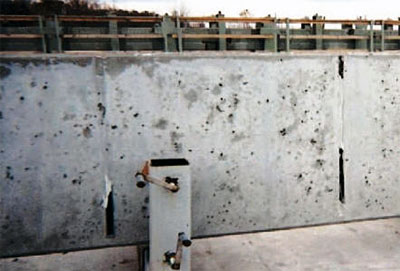Engineering Benefits
benefits | engineering | financial
Some Architectural Advantages of SCC Include:
Improved constructability
Virtually flawless finish
Homogenous and uniform concrete
Better reinforcement bonding
Flows easily into complex shapes and through congested reinforcement
Superior strength and durability
Allows for innovative architectural features

![]() It's hard to believe that such a difficult concrete pour was completed with such ease.
It's hard to believe that such a difficult concrete pour was completed with such ease.![]()
—Concrete Superintendent
As an engineered concrete, SCC offers characteristics that engineers value. Improved constructability to produce homogeneous and uniform concrete allows for higher reliability in design assumptions. Engineering properties and their inter-relationships remain unchanged from those of conventional concrete and any differences are adequately addressed by conservatism in the design codes. The principles of concrete durability with respect to reduced permeability, resistance to freezing and thawing and sulfate attack, alkali-aggregate reactions, thermal stresses and corrosion protection of reinforcement also apply similarly to SCC.

SCC offers advantages when heavy reinforcement is involved: SCC’s rheological characteristics allow it to flow easily through congested reinforcement.
SCC's superior rheology allows for the design and construction of complex shapes with congested reinforcement, and its non-segregating qualities are important for deep-section or long-span applications. The fluidity of SCC can be engineered in terms of its viscosity—both the rate and degree of flow—to allow for a wider variety of placement and construction means and methods.

SCC concrete

Standard concrete


